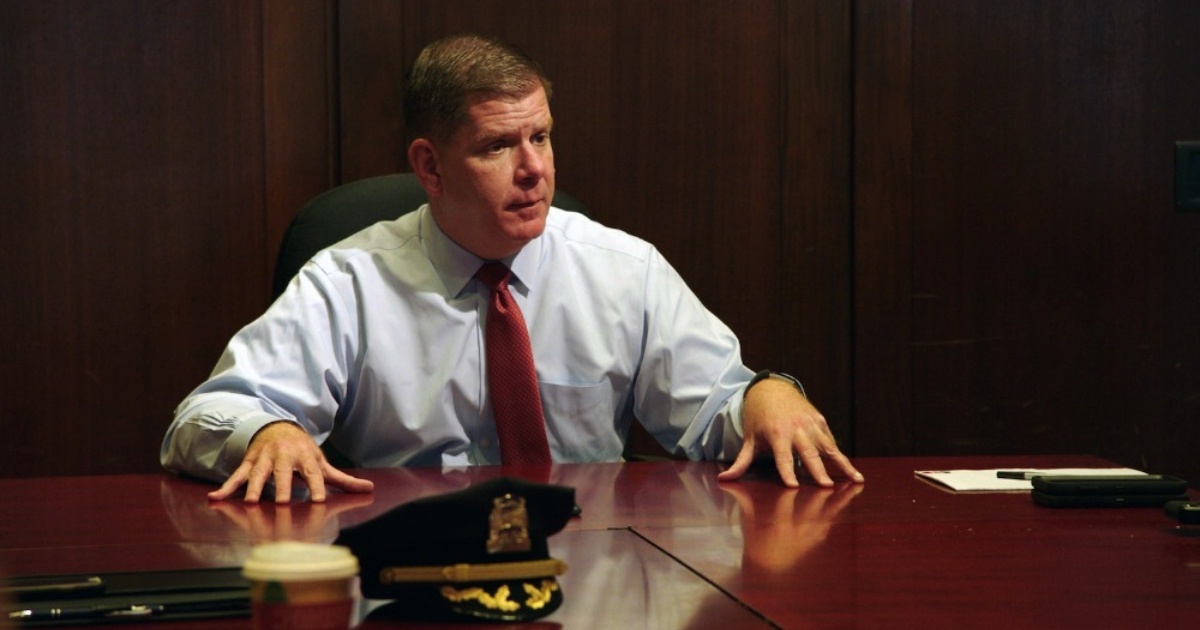
Leave it to documentary master Frederick Wiseman to make a 275-minute documentary about local city government and turn it into maybe the most essential American documentary of 2020.
That’s just the case with City Hall, the latest film in the ground-breaking career of Wiseman, a nearly four-and-a-half hour look into Boston’s City Hall. Led by its Mayor, one Marty J. Walsh, Boston’s City Hall encompasses quite a bit of life, from its leader on down to call centre employees, with Wiseman seemingly as interested in the mundane (parking ticket serving anyone?) as he is the coldly serious (gentrification is a rather consistent topic of conversation throughout). Showing how the proverbial sausage gets made, City Hall is just as that title may have one believe, a stoically told, straight forward glimpse into a specific city’s governmental goings on that, in its profound specificity, becomes strangely as universal as its title may lead someone to believe.
There are glimpses of real human insight. Arguably the film’s strongest part is also one of its longest, finding a group of veterans of various wars sharing their experiences, preaching peace as often as they discuss the pride they have for having served. It’s an incredibly textured and nuanced look into a proverbial middle that feels almost ripped out a science-fiction novel given our current political state. And not some absurdist neo-liberal ideal of a centrist stance. Instead Wiseman’s static, non-judgemental camera becomes something far more humanist and humane, using long takes to give room to these people and their experiences.
That being said, this isn’t an A-political film. Walsh is the closest thing any modern Wiseman film has had to a genuine, sincere lead character, and he becomes something of a guide for viewers through the knotty world of city government. Viewers watch as he gives speeches on gun control, attempts to connect and revitalize various minority groups in the city and deals with a city in some semblance of chaos, all with a grace and humanity far beyond what anyone could expect. He also becomes something of a ground for viewers. While the film, which opens on a presentation about the city budget, may sound like a dry dissertation on modern political stratification, what Wiseman does with centering his film around this figure, is humanizes the rest of the governmental agencies without giving any real considerable time to constructing them within the narrative. Instead returning to Walsh throughout the film, the City Hall of the title becomes a tactile place with real quantifiable depth.
There’s also so much life brimming within these halls. Be it a gay wedding viewers become privy to or enthralling discussions of race and gender inequality, life, more or less, is encompassed within the halls of your local City Hall, an establishment born out of the desire to bring communities and people together, a symbol for a type of interconnected humanity that seems impossible in a Trumpian America. And it’s in this Trumpian America that this type of rose-colored view of American democratic politics can be easily dismissed as such. However, what Wiseman brilliantly does here is less posit that everything’s fine and we’re all about to break through the racist structures that built this country, instead show us a world where a dialogue about how that may just happen is actually taking place. Boston’s ongoing battle with the white supremacy movement is seen here, for example, in one of the film’s more poignant and moving sequences. Poor communities are being shoved out of their neighborhoods in favor of weed shops. These are the types of vital battles taking place within this country, and few directors have as canny an ability to not just shoot these conversations well, but do so with a narrative and thematic eye.
Clocking in at just over 270 minutes, City Hall is an epic in every sense of the word. Wiseman’s latest is an epic in scope and narrative, looking into not just a moment in Boston political history, but more largely deconstructing modern democracy and its uncanny ability to burn real fire in the collective bellies of underprivileged communities with the promise of equality while building upon structures meant to kill any such movement. Watching as one city attempts to come to terms with its past while building a better future is exactly the type of humanist balm that has made Wiseman one of today’s great non-fiction auteurs.



